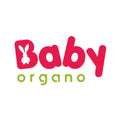How to help a crying baby with colic

You must have noted that your otherwise healthy and a month old baby is crying nowadays very often and that too without no reason. Your baby is crying inconsolably, especially at night and no cuddling is proving to be helpful. You are trying your best to comfort her, but she is screaming and crying due to some discomfort. And surprisingly this has become a daily routine. So for your information, this unpleasant but common condition in babies is known as colic pain.
What is Colic?
Colic pain is not a disease or a physical disorder, rather it is just a period of long and unexplainable crying. Colic pain does not require any physical diagnosis as it is based upon behavioural observation. In colic pain, a baby cries excessively for more than three hours, and more or less regularly. Moreover, a baby does not respond to comfort measures when he/she suffers from colic pain.
When does Colic start and end?
A colic pain in babies usually starts around the age of two months and continues until the baby reaches the age of three months.
A baby with colic starts crying from the evening which goes till midnight. However, being a parent, it is quite obvious that your feelings may be worn out. Colic usually starts disappearing completely around four months of age.
Signs of colic in babies
Colic pains are associated with the sudden onset of a high-pitched, painful and inconsolable crying of a baby. Other usual signs include,
- Enlarged stomach
- Passing gas
- Clenched fists
- Body stretching
- Extending up the legs.
Please note that colic is quite different from the normal crying of a baby. Fussy baby tends to calm down when a mother cuddles him, or holds him and gives very gentle strokes or pats on the back. By doing this baby feels better but with colic, parents do not know what their baby wants.
What Causes Colic in babies?
There is no specific reason behind the colic pain in babies. It is still unknown even to the medical experts. However, the following general theories can be one of the reasons behind colic pain.
- A natural developmental stage– Many doctors treat colic as a natural developmental stage of a baby. It is one of the different sensations and experiences of the baby that he experiences after coming outside the womb. According to them, a baby has to absorb all the sights, sounds and smells of the surroundings, which make them exhausted hence they cry out excessively.
- Digestive issues– some experts believe that colic pain is due to the gas caused by the lactose intolerance or gas-producing foods passed through breast milk.
How to help a crying baby with colic?
Many parents feel helpless and confused when their baby cries inconsolably due to the colic pain. However, there are some remedies which can be tried to help and prevent colic in your baby.
- Do not overfeed your baby, especially at night. Overfeeding can make your baby uncomfortable and thereby make him crying excessively.
- If you are a breastfeeding mother then try to avoid eating onion, cabbage, broccoli, peas and caffeinated drinks or beverages.
- Try burping your baby more often during the evenings and especially before going to bed at night.
- Give a gentle massage by placing your baby across your lap, tummy down and rub her back.
- Apply warm Hing(Asafoetida) on your baby's naval area or you may try Ayurvedic Hing Roll-On, which is safe for paediatric use.
- Swaddle your baby in a large and soft bedsheet or thin blanket.
- Posted in:
- General Tips





